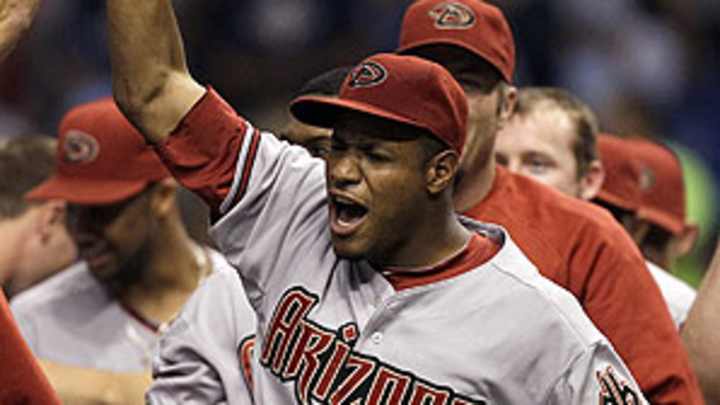Getting Jackson a good move for ChiSox, but not what they need


The Chicago White Sox, not that they always get the credit for it, have a philosophy, and one that works. Rather than develop from within, they prefer to acquire young veterans and slightly busted prospects who have played below their talents and fix them. Frontline starters John Danks and Gavin Floyd, middle-of-the-order threats Alex Rios and Carlos Quentin and reliever Bobby Jenks all fit the model, and so does freshly acquired starter Edwin Jackson. It's certainly possible that the Jackson trade is just prelude to a deal that would bring a desperately needed power hitter to the South Side, but for the moment we'll assume they intend to keep him.
Jackson, 27, is a pitcher with exceptional stuff and unexceptional numbers, though even those are better than they look -- his ERA may be 5.16 this year, for one, but his FIP (Fielding Independent Pitching), a more reliable gauge of how well he's been doing, is 4.27. His main problem is that he just walks too many batters: 4.02 per nine over his career, about a third as much as the league average.
If anyone is going to convince him to throw strikes, it will be White Sox manager Ozzie Guillen and pitching coach Don Cooper. The Sox have ranked at or below the league average in walk rate every year of Guillen's tenure, and Floyd, whose walk rate fell by about half after his arrival on the South Side, is a perfect example of the duo's ability to tame wild pitchers. Add in their apparent ability to coax their pitchers into avoiding the longball -- the Sox have picked up about 25 runs this year just by allowing a lower home run-to-fly ball ratio at home than logic says they should -- and they're perfectly situated to get the most out of Jackson's gifts.
The other side of the deal is Daniel Hudson, the Sox's top prospect and one who profiles as a reasonable mid-rotation starter. Usually, it would be silly to surrender a pitcher theoretically capable of average pitching, and who would cost just a hair over $1 million over the next three years, for a slightly better pitcher due $8.35 million next year alone. The Sox, though, very rarely surrender young players who amount to anything, and are in a tight race in the AL Central where the win or so they might pick up by swapping out Hudson for Jackson might well mean the difference between making the playoffs and not. They should get the benefit of the doubt.
The real problem here is that trading for a pitcher does nothing to directly solve the team's real needs. Their left fielders have hit for a .651 OPS this year, worst in the American League, and their designated hitters have hit for a lousy .704. GM Ken Williams could do nothing more to help his team's chances than replacing Juan Pierre or Mark Kotsay, and preferably both. And by trading Hudson, they've gotten rid of their most valuable chit.
If by the end of the day the team has someone like Adam Dunn or Lance Berkman in hand, with Jackson having been replaced by someone like Brett Myers, all will be well. If this ends up being their sole move, it will, however defensible a move, have been an exercise in missing the point.
